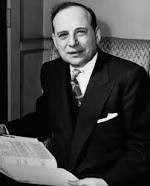Warren Buffett’s Berkshire Hathaway is invested in a lot of cash and cash equivalents, about $122 billion in August 2019.
Most investment managers cannot afford to wait to invest in stocks when the market is rising, as missing out on gains upsets investors. A decision to delay investing cash can be a career-ending move if the market keeps rising.
Is Buffett holding too much cash?
Warren Buffet is arguably the most successful investor in modern times. His investment vehicle called Berkshire Hathaway is managed by Buffett with Charlie Munger and others. That company is now worth $533 billion. The largest investment in Berkshire’s diversified portfolio is US Government Treasury bills and similar cash equivalents, now worth about $128 billion.
Here is what Warren says about holding cash in a special letter to shareholders:
“Next up is cash. At a healthy business, cash is sometimes thought of as something to be minimized – as an unproductive asset that acts as a drag on such markers as return on equity. Cash, though, is to a business as oxygen is to an individual: never thought about when it is present, the only thing in mind when it is absent.
American business provided a case study of that in 2008. In September of that year, many long-prosperous companies suddenly wondered whether their checks would bounce in the days ahead. Overnight, their financial oxygen disappeared.
At Berkshire, our “breathing” went uninterrupted. Indeed, in a three-week period spanning late September and early October, we supplied $15.6 billion of fresh money to American businesses.
We could do that because we always maintain at least $20 billion – and usually far more – in cash equivalents. And by that we mean U.S. Treasury bills, not other substitutes for cash that are claimed to deliver liquidity and actually do so, except when it is truly needed. When bills come due, only cash is legal tender. Don’t leave home without it.”
But the decision to hold so much cash is hurting performance. Berkshire is on pace to have its worst year in a decade while the S&P 500 is up 20 percent.
Buffett must have a good reason for sitting on his hands. Or perhaps he’s slowing down as he’s going to be 90 years of age next August.
It’s likely that advanced age isn’t the only reason for hesitation. Another factor could be Buffett’s formative years as a young student attending Columbia business school where “the father of value investing”, Ben Graham, taught. Graham’s approach was outlined in his lectures and his book, “The Intelligent Investor” originally published in 1949. This book is considered to be the definitive book on value investing. For an earlier book, called “Security Analysis” (published in 1934) Graham teamed up with another professor who taught Buffett, David Dodd.
Warren Buffett said, “Together, the book and the men changed my life.”

Ben Graham in 1955. Source: Wikipedia
According to Seth Klarman, in the preface to the sixth edition, value investing is “the practice of purchasing securities or assets for less than they are worth—the proverbial dollar for fifty cents.” According to Graham and Dodd, this method produces a “margin of safety” that will provide a cushion for bad decisions, bad luck or a stock market crash.
Today, US stock market prices are so elevated that there are very few attractive opportunities for investing at 50 cents on the dollar, and therefore no “margin of safety”. So, Buffett will wait patiently with his pile of cash until he sees a great company at a price that meets his criteria.
When that time comes, his cash will be put to work very profitably.
Hilliard MacBeth
The opinions expressed in this report are the opinions of the author and readers should not assume they reflect the opinions or recommendations of Richardson GMP Limited or its affiliates. Assumptions, opinions and estimates constitute the author's judgment as of the date of this material and are subject to change without notice. We do not warrant the completeness or accuracy of this material, and it should not be relied upon as such. Before acting on any recommendation, you should consider whether it is suitable for your particular circumstances and, if necessary, seek professional advice. Past performance is not indicative of future results. The comments contained herein are general in nature and are not intended to be, nor should be construed to be, legal or tax advice to any particular individual. Accordingly, individuals should consult their own legal or tax advisors for advice with respect to the tax consequences to them, having regard to their own particular circumstances.. Richardson GMP Limited is a member of Canadian Investor Protection Fund. Richardson is a trade-mark of James Richardson & Sons, Limited. GMP is a registered trade-mark of GMP Securities L.P. Both used under license by Richardson GMP Limited.